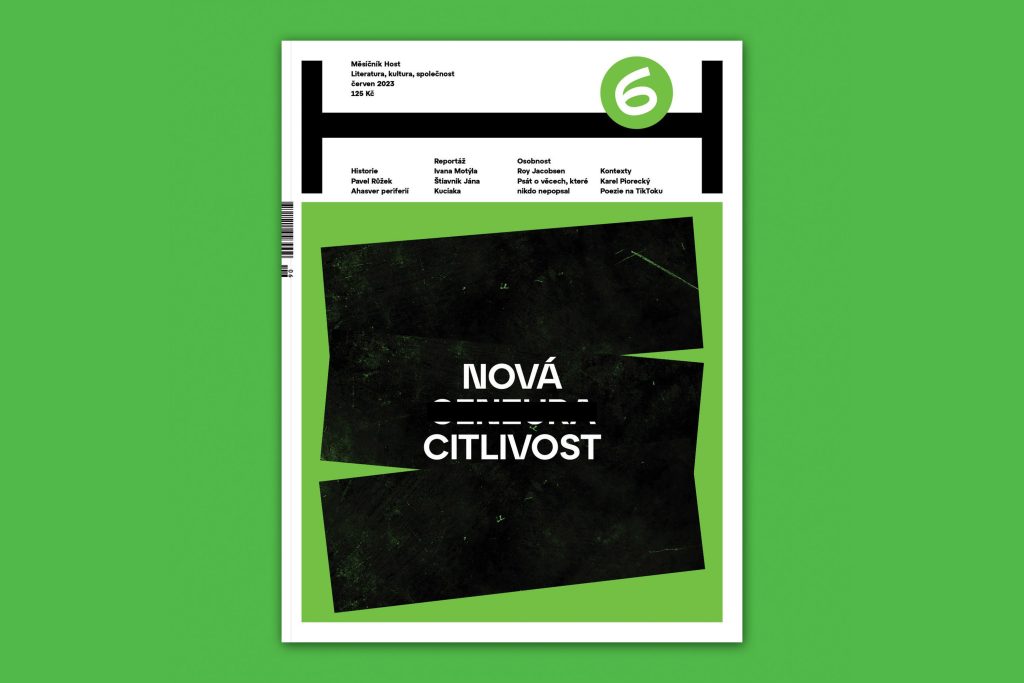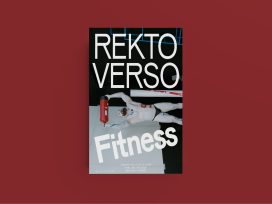
Growing reluctance to engage with books is endangering democracy and science. Deep reading boosts the human capacity for abstract and analytical thinking, protecting us from the corrosive effects of bias, prejudice and conspiracy theories.
Perspectives on cancel culture: much ado about nothing or the coddling of the Czech mind? Also: Children’s literature without children – why the ‘child reader’ does not exist.
In Host, contributors weigh in on the Anglophone trend of updating children’s classics and using sensitivity readers. Poet and writer Jan Jindřich Karásek sums up the pros and contras: rather than limiting artistic freedom, sensitivity readers can help authors fact-check their works and write with empathy, he argues. Rather than some sinister Orwellian censorship, alterations made by streaming companies to classic films are simply a way of ensuring profits.
But Karásek doesn’t condone updating classic children’s books to meet present-day sensitivities. After all, readers cannot avoid such controversial issues in the real world. What would be more useful, Karásek argues, is including a preface or afterword that explains why certain passages were perceived differently in their day. ‘Sometimes the historical value of a work derives directly from how unacceptable it appears in hindsight. Paradoxically, this can be an opportunity for a dialogue about what is acceptable today, why this or that is regarded as normal, and how the world is changing.’
Writer Marek Torčík pushes back against the hysterical response to ‘cancel culture’ in the Czech Republic. All the fuss about censorship obscures what Torčík regards as more important: ‘While we are up in arms about our young generation, we tend to shrug off the thousands of books removed from libraries in the US … We see something similar in countries closer to home: in Hungary, with books on queer topics not being sold in bookshops in the vicinity of schools and having to be sought in sections for books for adults, while in Turkey Heartstopper, a comic book for young adults, is sold wrapped in paper bearing an 18+ sticker.’
Recalling her rough-and-tumble childhood in communist Czechoslovakia, award-winning novelist Bianca Bellová rails against the emergence of ‘sensitivity readers’ and claims that being hyper-protective of young readers reduces their resilience. She sees sensitivity reading as a futile endeavour, since we can never protect everyone from potentially hurtful words.
‘How would we ever learn about trauma if authors were not allowed to write about it? Should writers avoid controversial topics because of hypersensitivity and politicisation? What would happen to the works of Dostoevsky, Toni Morrison, Charles Bukowski or Nabokov? Surely the sharing of trauma and of how it is overcome is a key benefit of reading, as it brings the healing realisation that we are not alone with our pain and that someone before us has had the same experience.’
Jana Šrámková, who writes fiction for both adults and children, reflects on her experience of attending this year’s Bologna Children’s Book Fair where she was struck by the complete absence of children. This brought home to her that the book market’s idea of a ‘child reader’ is, in fact, based on a combination of the ideas, projections and interests of adult authors and adult publishers with the interests, tastes and judgement of parents, as well as adult critics, teachers and librarians, mostly representing the older generation.
Šrámková introduces a number of recent Czech initiatives foregrounding the child’s own perspective, from activities organised by children’s bookshops to internet portals and online groups that encourage children to write reviews. She believes that children are able to decide which book is right for them and warns against treating them as a single homogenous mass, since ‘there is no such thing as a “child reader”. Surprisingly, there are as many different kinds of child readers as adult readers. An infinite number.’
Published 20 July 2023
Original in English
First published by Eurozine
Contributed by Host © Eurozine
PDF/PRINTSubscribe to know what’s worth thinking about.

Growing reluctance to engage with books is endangering democracy and science. Deep reading boosts the human capacity for abstract and analytical thinking, protecting us from the corrosive effects of bias, prejudice and conspiracy theories.

In rekto:verso: what the body of the action hero says about relations of power; why yoga’s discourse of accessibility rings hollow; and whether fitness practitioners should really be reading Mishima.